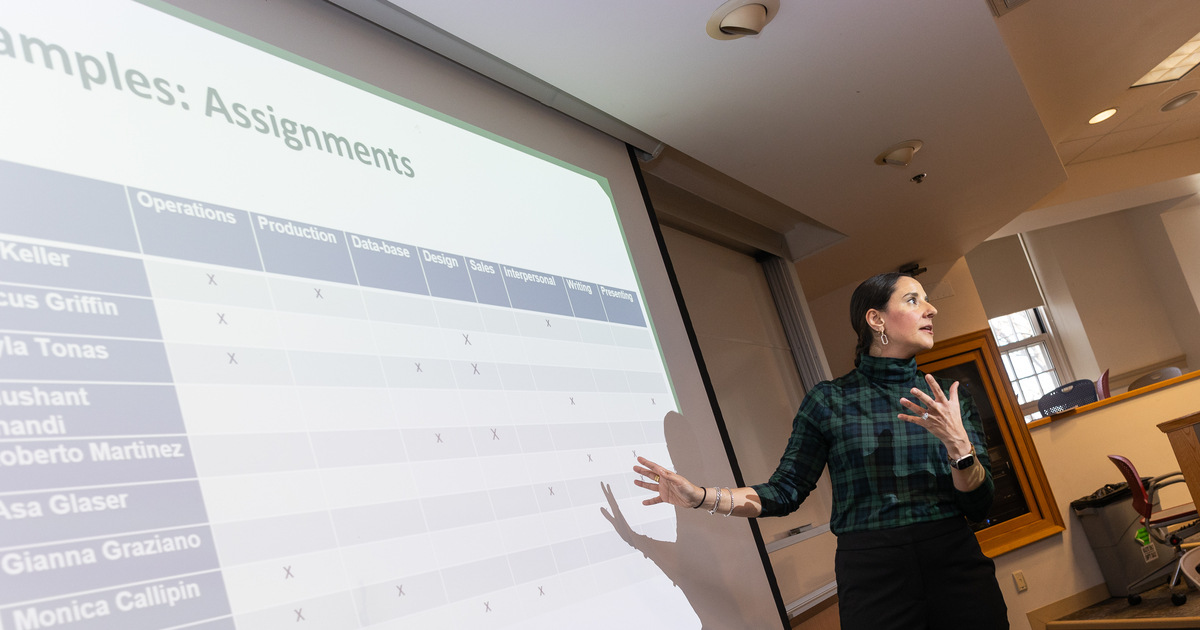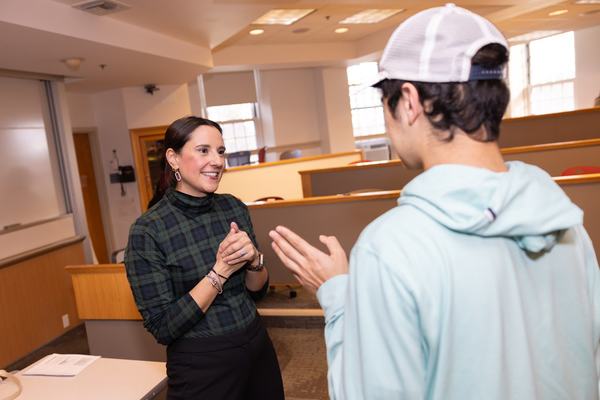How to Build Diversity in Any Organization

How can you make your workplace more inclusive?
Babson Assistant Professor of Practice Michele Kerrigan says everyone, from the highest levels of an organization to a fresh hire, can make an impact and expand diversity, equity, and inclusion (DEI).
“The goal is to really prepare people to use an equity lens as they go into the workplace,” Kerrigan says about a new class she teaches at Babson on building inclusive organizations. It’s to prepare them to be critical questioners of their workplace environments and to think about how they can be change agents and allies in the workplace.”
Kerrigan’s journey began a few years ago when she helped redesign the DEI content in Foundations of Management and Entrepreneurship, Babson’s seminal first-year course that she also co-teaches. She also worked with Associate Teaching Professor Kerry Rourke P’23 and under the leadership of Professor Nan Langowitz and Professor Jerome Taillard to create the Inclusive Teaching Training Program. It focused on both self-reflection and teaching pedagogy, empowering faculty to create inclusive spaces within their classrooms. Kerrigan also was honored with a Martin Luther King Jr. Leadership Award during Babson’s MLK Legacy Day event last week.
Kerrigan’s new elective course, Building Inclusive Organizations, attracted students from across disciplines when she taught it for the first time last spring. As she prepared to teach the course again, Kerrigan detailed ways to boost inclusivity in any organization.
Inner Work Comes First
The cornerstone of Kerrigan’s teaching philosophy lies in introspection. The interior work is key before examining external frameworks of diversity in the workplace.
“We have to take a look within to understand our own complexities, our own blind spots, our own narratives and our own biases, before we can really look out,” Kerrigan says.
“I make them be owners of facilitating the conversation. So there is a chance for them to think and process and talk about what they’re learning and how to apply it.”
Michele Kerrigan, Assistant Professor of Practice
Identity Groups
Kerrigan then details different identity groups, providing more insight into the issues that each group encounters. Each week, her class navigates through those different groups, from race and gender to neurodiversity and global perspectives.
“I try to bring different experts who have that lens and can enrich the discourse,” Kerrigan says. Students discuss bias, microaggressions and have conversations about different potential scenarios where they can help boost DEI in the workplace.
Action in Education
In a nod to Babson’s unique Entrepreneurial Thought & Action® (ET&A™) teaching methodology, Kerrigan then asks students to co-teach a class. The students take action, using what they’ve learned to lead class discussions and foster engagement.

“I make them be owners of facilitating the conversation,” Kerrigan says. “So there is a chance for them to think and process and talk about what they’re learning and how to apply it.”
Conscious Capitalism
Kerrigan then asks students to choose a company to audit. By combing through a company’s diversity, inclusivity, and equity policies, students discover how the organization measures up and learn about DEI application in the real world.
“I encourage them to employ conscious capitalism, to pick a company that they have a connection to in some way, shape, or form,” Kerrigan said. Students respond strongly to the exercise, says Kerrigan, because it empowers them to be change agents and allies in their future workplaces.
“I was incredibly impressed by the commitment levels of my students,” Kerrigan said. She hopes the class not only educates but also inspires, planting seeds of awareness and action that will bear fruit long after students graduate.
“I feel the course is relevant and applicable to any role that students are going into post-graduation,” Kerrigan says. “It’s not just for management or those looking at leadership. It’s really for anyone.”




